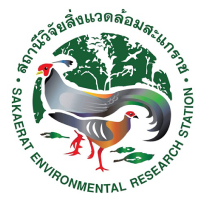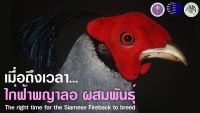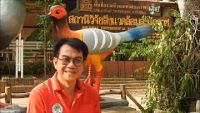Keywords :
Conservation; Fear; Mortality; Elapid; Snake; Survival; Human Dimensions; Attitudes; Thailand
บทคัดย่อ :
Protected areas are often promoted as an important solution to preserving biodiversity. However, permeable edges can
undermine the effectiveness of preserves because animals may move into adjacent human-dominated unprotected areas. We
investigated attitudes toward, and sources of mortality of, a far-ranging apex predator, the king cobra (Ophiophagus hannah;
Cantor 1836), in a biosphere reserve in northeastern Thailand. Our questionnaire revealed marked fear of snakes and
hostility toward king cobras. Using radiotelemetry, we followed 23 king cobras over a 4-year period, during which time we
documented the mortality of 14 individuals. We considered 10 of the deaths to be anthropogenic in origin, including road
mortality, pollution, fish traps, and direct persecution; these deaths disproportionately occurred in unprotected areas. Our
results highlight how dangerous human-dominated landscapes are for king cobras. Because king cobras move long distances
and maintain large home ranges, it is likely that successful conservation of the species cannot be satisfactorily met by
protected areas alone; a more holistic, education-focused conservation strategy is required. We stress the importance of a
human dimensions approach that leads toward greater understanding of human attitudes toward king cobras, and snakes in
general, combined with ecological research for more effective conservation.
เอกสารอ้างอิง :
Marshall, B. M., Strine, C. T., Jones, M. D., Theodorou, A., Amber, E., Waengsothorn, S., ... & Goode, M. (2018a). Hits close to home: repeated persecution of King Cobras (Ophiophagus hannah) in Northeastern Thailand. Tropical Conservation Science, 11, 1940082918818401.



